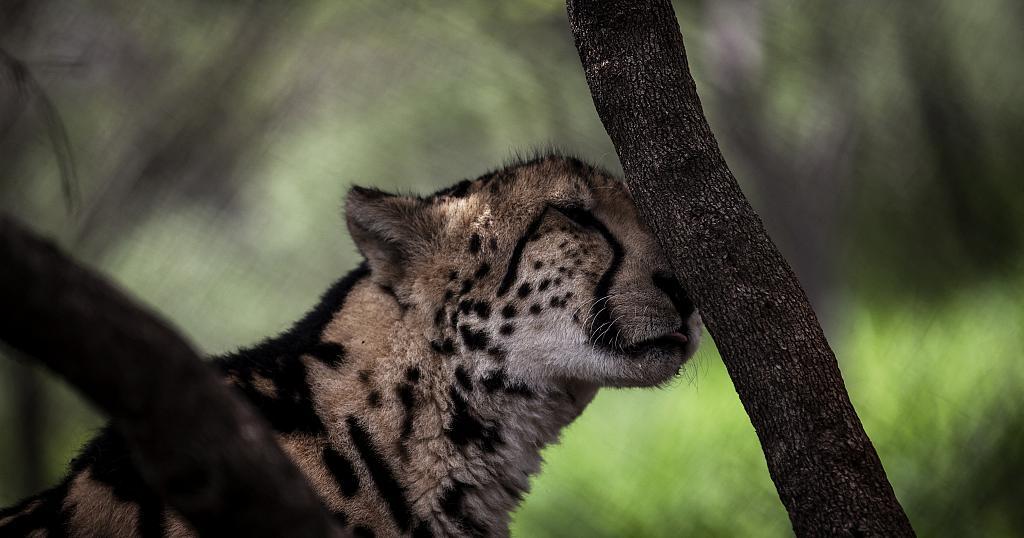Africa-Press – Angola. Cheetahs are the fastest land mammal, capable of speeds exceeding 60 miles per hour.
But they also hold another distinction: the rarest big cat in Africa, with fewer than 7,000 alive in the wild.
These animals at Somaliland Heritage’s Cheetah safe house have been rescued from an uncertain future.
Cheetahs are frequently poached from the horn of Africa countries such as Kenya, Somalia and Ethiopia according to the centre.
Instability and high levels of poverty have enabled illegal business to thrive in recent years, leading to a drop in the number of cheetahs in the wild.
Somaliland Heritage Cheetah safe house is a rescue centre dedicated to protecting such animals from the illegal pet trade.
Cheetahs face a very hard life once they are in the hands of the poachers and smugglers.
They are usually trafficked to the Arabian Peninsula where they are sold as pets to the highest bidder.
The conditions for trafficking these animals are usually poor and many of the cubs end up dying before they’ve even reached their destination.
According to Patricia Tricorache, who is an Illegal Wildlife Trade (IWT) expert for the Cheetah Conservation Fund, the animals are normally captured when very young and often undergo inhumane treatment during transportation.
“They are usually about 2 weeks to 4 weeks old, when they are taken, which means that they do not get nutrition from their mother and then they are subjected to transport in very difficult conditions. They are not fed properly, sometimes they are mistreated,” she says.
Tricorache adds that most of the time the people who buy these animals do not have proper knowledge of how to take care of them.
They don’t understand how to feed the cheetahs or which medication to give them when they fall sick.
“You can find cheetahs, if you see on social media they are in small yards or they are in living rooms, they play with them very brusquely and it is very stressful for the animals.”
Huda Ali Banfas is the rescue centre’s chairperson and is responsible for taking care of the rescued cheetahs.
She shows the kinds of small boxes the animals are often transported in.
“This yellow bucket here is also one of the transfer boxes for the smugglers. In 2019 we got three cubs here in this bucket. It is so small, if you can see, and it is not good for animals to be inside this thing. But this is the type of transfer boxes the smugglers use for the cubs.”
According to Tomas Maule, a conservationist with the Horn of Africa Conservation Alliance, cheetahs in the horn of Africa are now endangered.
“Cheetahs are very endangered big cats. Cheetahs are living usually in semi-arid areas so the impacts of climate change are very severe on the animal. The animal lives over very large areas so just management of protected areas usually is not enough to protect the animal in the wild,” Maule says.
“At the moment we have only about 7,000 cheetahs left in the wild in the world which is actually a very, very low number and in the horn itself.”
Cheetahs are listed as vulnerable on the IUCN Red List of Threatened Species.
For More News And Analysis About Angola Follow Africa-Press






